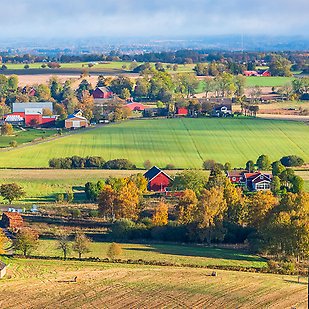Geography

Geography is a combination/compound of natural and social sciences. It provides a comprehensive perspective on the questions of how and why our world is changing. The geographical picture includes analysis and explanation of social phenomena and how they interact with each other. Meanwhile, these social processes are seen as being related to physical/natural processes that are going on around us. To achieve a complete picture we need knowledge and understanding of the physical conditions of the landscape and how they affect society. This is fundamental also to questions related to sustainable development.
Geographic analysis is conducted at different scales: global, regional and local. Globalisation and international perspectives are as important as individuals' age, sex, religion, social class, cultural background and locale. Geographical analysis also includes temporal perspectives. Today's society is related to the past and the future. Forecasts and Environmental Impact Assessment (EIA) are important elements in the geographer's work.
Teaching is based on an interaction between human geography and physical geography and includes both geographical theory and methodology as well as geographical information systems (GIS). Field courses and excursions are important elements.
Geographers have a natural labour market throughout the world in (urban) planning and resource management. Geographers also have an important role to play in interdisciplinary research. In the media and public debate, there is a great need for people with geographical knowledge and a geographic ethos. Studies in geography also provide qualifications to teach geography in primary and secondary schools.
Courses
Bachelor's level, basic courses
Bachelor's level, continuing courses
Master's level courses
Contact
- Study counselling
- studier@kultgeog.uu.se
- +46 18 471 25 35
